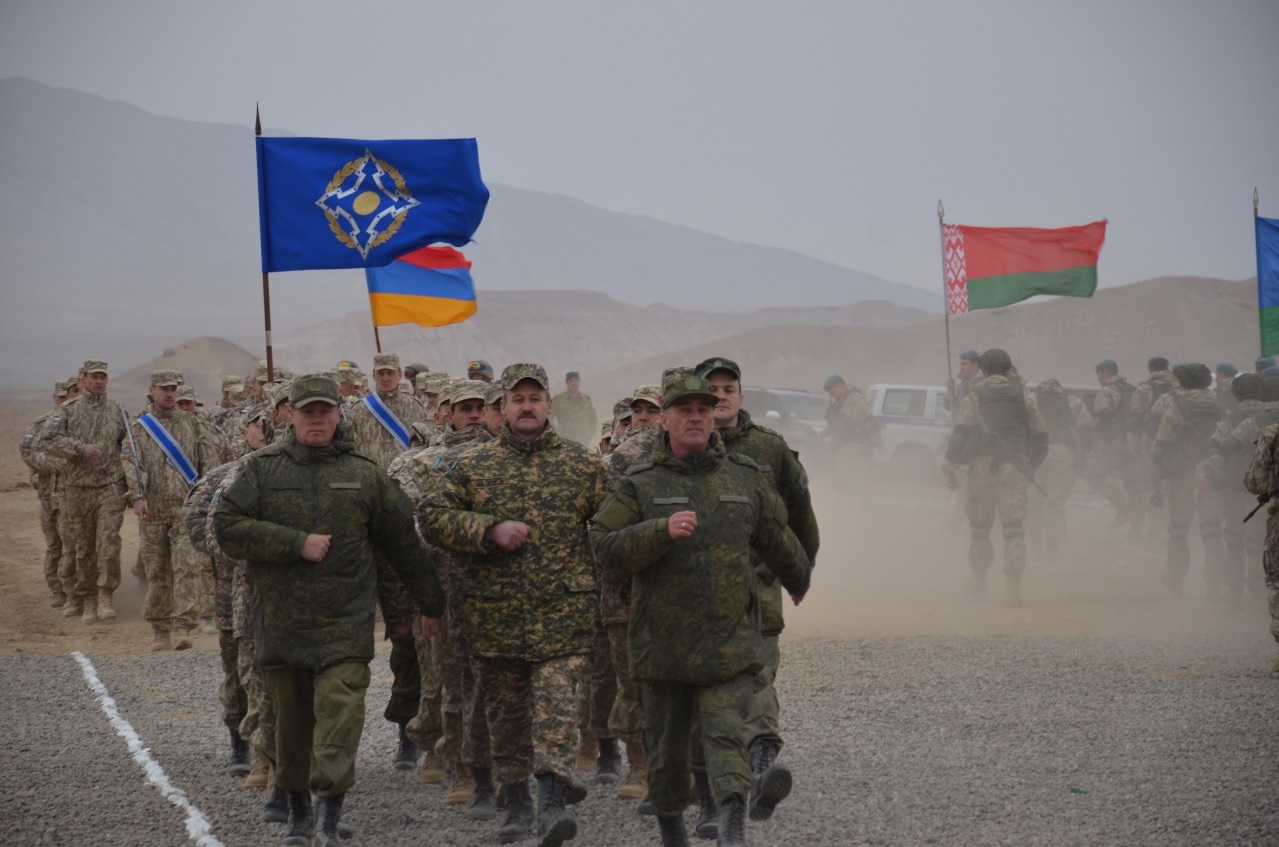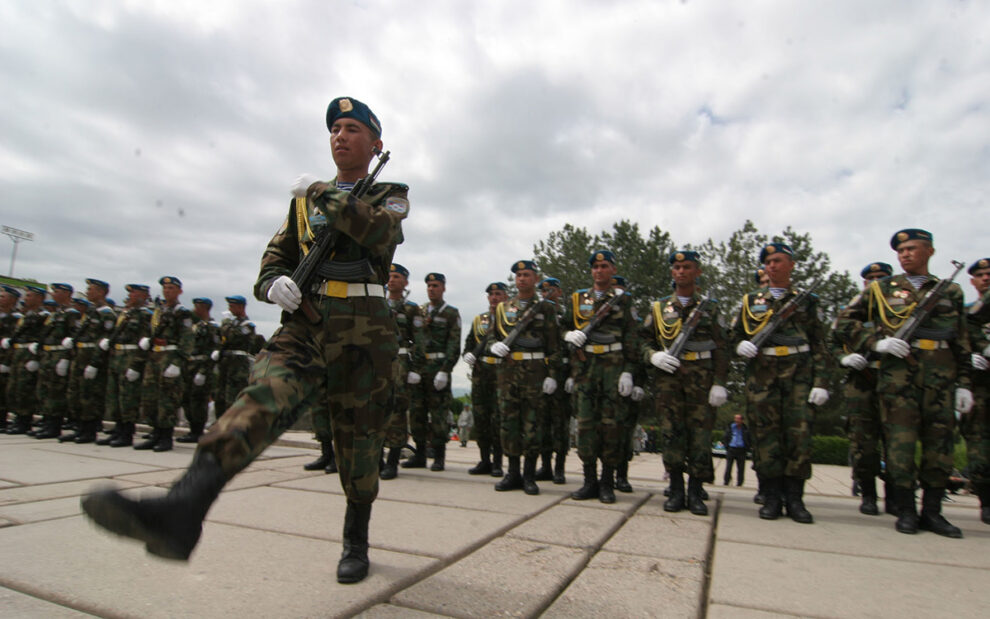Copenhagen (17/08 – 78)
Kidnapping, intimidation, and blackmail are just some of the means used to hit enlistment quotas in Tajikistan.
When conscription season comes around in Tajikistan, military recruiters begin resorting to desperate measures. Scooping young men off the streets in actions tantamount to kidnapping is standard. But that is just for starters. To pressure communities into giving up their sons, recruiters will disconnect the electricity, detain relatives, and shut down mosques.
Eligible levees draw lots to decide who will be the one to hand themselves over.
The hunting season for men of draft age, which applies to people between 17 and 27, happens twice yearly. Men with no siblings and the medically unfit are exempted. The spring enlistment drive starts in April. Fear of recruitment is well-founded. Military service lasts two years and tales of horrendous abuse and dismal living conditions are legion. Countless men who have completed their service have also reported the devastating psychological effects of being sexually assaulted.

In Tajikistan, scooping young men off the streets in actions tantamount to kidnapping is standard during the enlistment season. But that is just for starters. To pressure communities into giving up their sons, recruiters will disconnect the electricity, detain relatives, and shut down mosques.
Mustafo, a 16-year-old from Dushanbe shared that he took to carrying his birth certificate and paperwork from his school to prove to prowling recruiters that he was still studying.
He has reason to be nervous. “[On one occasion], I was in my regular clothes at the market, my mother had sent me to do the shopping. Two men came up to me and greeted me. I reacted calmly, suspecting nothing. Then they grabbed me by the belt and tried to get me to go into their car. Only once I was in the car did I realize that that it turned out I was being taken into the army. Telling them that I was still at school had no effect on them,” Mustafo said.
Mustafo was lucky not to have had his phone taken away from him. As soon as he could, he called his father. “My father came to the recruiting office with a birth certificate. But they did not believe him. They demanded a certificate from my school and from the head of our local mahalla (neighborhood). Only once my father brought all the documents did they let me go,” he said.
Exact numbers on how many young men are conscripted are not made public. Local officials will at times compete, however, on who has managed to hit their quotas the earliest.
Not long after dawn on the first day of this most recent conscription season, on April 1, the mayor of Khorog, the capital of the Gorno-Badakhshan Autonomous Region, or GBAO, posted a statement online to say his city had already achieved 104 percent of the quota. Eighteen people even returned to Tajikistan from Russia so they could serve, he claimed.
However, sources in GBAO reported that recruitment quotas were not met, and that the local authorities, led by governor Alisher Mirzonabotov, former deputy chairman of the GKNB, initiated a draft campaign, known locally as “Oblava” or “the Raid,” which launches in early Spring and Autumn. The governor of GBAO, like other regional leaders, was tasked by the central authorities with providing a quota of recruits from the region.
The Spring 2022 “Raid” reportedly differed significantly from previous years. Gov. Mirzonabotov faced significant challenge in meeting the required quota, as many young Pamiris men had already left GBAO en masse since the repressions against the Pamiris sharply escalated in May 2022. According to sources on the ground, these individuals are desperate to leave the region, with many opting to go to Russia despite the difficulties and risks they may face there. This exodus has made it difficult for the authorities to find enough draftees from the region, and they are now resorting to desperate measures to meet their quotas.

Anora Sarkorova, a journalist based in Europe but originally from the GBAO, wrote on her popular Telegram channel that she had learned of young people being scooped up directly from schools and that parents of eligible men were threatened with reprisals unless they got their children to return from Russia. In other episodes from Khorog reported by Sarkorova, young people were expelled from university so that they could be enlisted.
The expedients dreamed up by recruiters are becoming ever more elaborate with every passing year.
A resident of Panjakent, a town in western Tajikistan not far from Samarkand in Uzbekistan, told of how several people there had been arrested by the State Committee for National Security, or GKNB, the successor agency to the KGB, in order to pressure them into getting their sons to return from Russia.
Dilnoza, a final-year student at the Tajik National University in Dushanbe, said that the men in her class were allowed to take their exams early so that they would be freed up from their studies and thereby rendered eligible.
“The boys in our group were offered help to make sure they passed their exams and free driving licenses and they were promised help finding employment later on,” said Dilnoza, who also spoke on condition of anonymity for fear of reprisals. “The ones who weren’t too confident in their [academic abilities] agreed to enlist of their own free will and did their exams early. The ones who were more confident naturally refused, but they made them do their exams early anyway.”
Some outrageous mass round-up attempts have at times sparked scenes of solidarity among victims. Last year, video footage surfaced online showing the scene of GKNB officers attempting to forcibly escort away young people filing out of an exam hall at the Yavan medical college, around 60 kilometers from the capital, Dushanbe. Female fellow students leapt into action, pelting the recruiters’ bus with rocks and preventing it from leaving. The would-be recruits were eventually allowed to leave.
The authorities as a rule issue blanket denials that recruiters stoop to such measures, limiting themselves only to reports on purportedly successful enlistment drives.
A resident of Kolkhozobod, a town around 130 kilometers south of Dushanbe, commented that their neighborhood went without electricity for three days until they could agree among themselves on whose sons would enlist.
“What happens is that most guys leave to work in Russia. Those who are here hide in the homes of their relatives. The electricity was cut off for three days. They said that until guys who could serve surrendered, the power would not be turned back on. After three days, the residents came to an agreement: some got their sons to return from Russia, others snitched on the ones who had hidden,” the Kolkhozobod resident said on condition of anonymity.
There is a way out of all this, though. There are provisions in law that sons can be exempted against payment of a fee of 28,500 somoni (around $2,600). Average nominal monthly salaries in Tajikistan stand currently around $170.
Dilrabo Samadova, head of the Office of Civil Liberties, a group that campaigns for the rights of military personnel, said that the lot of conscripts has improved somewhat in the past 15 years or so. She conceded, however, that mandatory military service remains as unpopular as ever.
“Young people do not strive to fulfil their constitutional duty because of hazing,” she said. “Military personnel are subjected to bullying, including physical abuse, for up to six months.”
Because levees have no access to their phones, cases of bullying go unreported until somebody is killed or gravely injured. News outlet Cabar.Asia has reported, citing UN data, that at least 100 people have died while serving in the army over the past three years.
On some occasions, though, the outrage is so great that even the Tajik government is unable to ignore it.
In April, footage appeared on social media showing a number of young soldiers receiving a vicious beating with sticks and being kicked in the stomach. It was not clear from the footage what had instigated this punishment.
The Prosecutor General’s Office responded to the ensuing public clamor by saying that the attackers, who were reputedly later sentenced to 10 years in prison, had violated the military code of mutual respect among servicemen.
Prosecutors typically only react this way to the rare incidents caught on camera, however. Hazing is ubiquitous and almost all takes place far from the prying eyes of the public.
Anora Sarkorova, a journalist based in Europe but originally from the GBAO, wrote on her popular Telegram channel that she had learned of young people being scooped up directly from schools and that parents of eligible men were threatened with reprisals unless they got their children to return from Russia. In other episodes from Khorog reported by Sarkorova, young people were expelled from university so that they could be enlisted.
The expedients dreamed up by recruiters are becoming ever more elaborate with every passing year.
A resident of Panjakent, a town in western Tajikistan not far from Samarkand in Uzbekistan, told of how several people there had been arrested by the State Committee for National Security, or GKNB, the successor agency to the KGB, in order to pressure them into getting their sons to return from Russia.
Dilnoza, a final-year student at the Tajik National University in Dushanbe, said that the men in her class were allowed to take their exams early so that they would be freed up from their studies and thereby rendered eligible.
“The boys in our group were offered help to make sure they passed their exams and free driving licenses and they were promised help finding employment later on,” said Dilnoza, who also spoke on condition of anonymity for fear of reprisals. “The ones who weren’t too confident in their [academic abilities] agreed to enlist of their own free will and did their exams early. The ones who were more confident naturally refused, but they made them do their exams early anyway.”
Some outrageous mass round-up attempts have at times sparked scenes of solidarity among victims. Last year, video footage surfaced online showing the scene of GKNB officers attempting to forcibly escort away young people filing out of an exam hall at the Yavan medical college, around 60 kilometers from the capital, Dushanbe. Female fellow students leapt into action, pelting the recruiters’ bus with rocks and preventing it from leaving. The would-be recruits were eventually allowed to leave.
The authorities as a rule issue blanket denials that recruiters stoop to such measures, limiting themselves only to reports on purportedly successful enlistment drives.
A resident of Kolkhozobod, a town around 130 kilometers south of Dushanbe, commented that their neighborhood went without electricity for three days until they could agree among themselves on whose sons would enlist.
“What happens is that most guys leave to work in Russia. Those who are here hide in the homes of their relatives. The electricity was cut off for three days. They said that until guys who could serve surrendered, the power would not be turned back on. After three days, the residents came to an agreement: some got their sons to return from Russia, others snitched on the ones who had hidden,” the Kolkhozobod resident said on condition of anonymity.
There is a way out of all this, though. There are provisions in law that sons can be exempted against payment of a fee of 28,500 somoni (around $2,600). Average nominal monthly salaries in Tajikistan stand currently around $170.
Dilrabo Samadova, head of the Office of Civil Liberties, a group that campaigns for the rights of military personnel, said that the lot of conscripts has improved somewhat in the past 15 years or so. She conceded, however, that mandatory military service remains as unpopular as ever.
“Young people do not strive to fulfil their constitutional duty because of hazing,” she said. “Military personnel are subjected to bullying, including physical abuse, for up to six months.”
Because levees have no access to their phones, cases of bullying go unreported until somebody is killed or gravely injured. News outlet Cabar.Asia has reported, citing UN data, that at least 100 people have died while serving in the army over the past three years.
On some occasions, though, the outrage is so great that even the Tajik government is unable to ignore it.
In April, footage appeared on social media showing a number of young soldiers receiving a vicious beating with sticks and being kicked in the stomach. It was not clear from the footage what had instigated this punishment.
The Prosecutor General’s Office responded to the ensuing public clamor by saying that the attackers, who were reputedly later sentenced to 10 years in prison, had violated the military code of mutual respect among servicemen.
Prosecutors typically only react this way to the rare incidents caught on camera, however. Hazing is ubiquitous and almost all takes place far from the prying eyes of the public.
Anora Sarkorova, a journalist based in Europe but originally from the GBAO, wrote on her popular Telegram channel that she had learned of young people being scooped up directly from schools and that parents of eligible men were threatened with reprisals unless they got their children to return from Russia. In other episodes from Khorog reported by Sarkorova, young people were expelled from university so that they could be enlisted.
The expedients dreamed up by recruiters are becoming ever more elaborate with every passing year.
A resident of Panjakent, a town in western Tajikistan not far from Samarkand in Uzbekistan, told of how several people there had been arrested by the State Committee for National Security, or GKNB, the successor agency to the KGB, in order to pressure them into getting their sons to return from Russia.
Dilnoza, a final-year student at the Tajik National University in Dushanbe, said that the men in her class were allowed to take their exams early so that they would be freed up from their studies and thereby rendered eligible.
“The boys in our group were offered help to make sure they passed their exams and free driving licenses and they were promised help finding employment later on,” said Dilnoza, who also spoke on condition of anonymity for fear of reprisals. “The ones who weren’t too confident in their [academic abilities] agreed to enlist of their own free will and did their exams early. The ones who were more confident naturally refused, but they made them do their exams early anyway.”
Some outrageous mass round-up attempts have at times sparked scenes of solidarity among victims. Last year, video footage surfaced online showing the scene of GKNB officers attempting to forcibly escort away young people filing out of an exam hall at the Yavan medical college, around 60 kilometers from the capital, Dushanbe. Female fellow students leapt into action, pelting the recruiters’ bus with rocks and preventing it from leaving. The would-be recruits were eventually allowed to leave.
The authorities as a rule issue blanket denials that recruiters stoop to such measures, limiting themselves only to reports on purportedly successful enlistment drives.
A resident of Kolkhozobod, a town around 130 kilometers south of Dushanbe, commented that their neighborhood went without electricity for three days until they could agree among themselves on whose sons would enlist.
“What happens is that most guys leave to work in Russia. Those who are here hide in the homes of their relatives. The electricity was cut off for three days. They said that until guys who could serve surrendered, the power would not be turned back on. After three days, the residents came to an agreement: some got their sons to return from Russia, others snitched on the ones who had hidden,” the Kolkhozobod resident said on condition of anonymity.
There is a way out of all this, though. There are provisions in law that sons can be exempted against payment of a fee of 28,500 somoni (around $2,600). Average nominal monthly salaries in Tajikistan stand currently around $170.
Dilrabo Samadova, head of the Office of Civil Liberties, a group that campaigns for the rights of military personnel, said that the lot of conscripts has improved somewhat in the past 15 years or so. She conceded, however, that mandatory military service remains as unpopular as ever.
“Young people do not strive to fulfil their constitutional duty because of hazing,” she said. “Military personnel are subjected to bullying, including physical abuse, for up to six months.”
Because levees have no access to their phones, cases of bullying go unreported until somebody is killed or gravely injured. News outlet Cabar.Asia has reported, citing UN data, that at least 100 people have died while serving in the army over the past three years.
On some occasions, though, the outrage is so great that even the Tajik government is unable to ignore it.
In April, footage appeared on social media showing a number of young soldiers receiving a vicious beating with sticks and being kicked in the stomach. It was not clear from the footage what had instigated this punishment.
The Prosecutor General’s Office responded to the ensuing public clamor by saying that the attackers, who were reputedly later sentenced to 10 years in prison, had violated the military code of mutual respect among servicemen.
Prosecutors typically only react this way to the rare incidents caught on camera, however. Hazing is ubiquitous and almost all takes place far from the prying eyes of the public.










